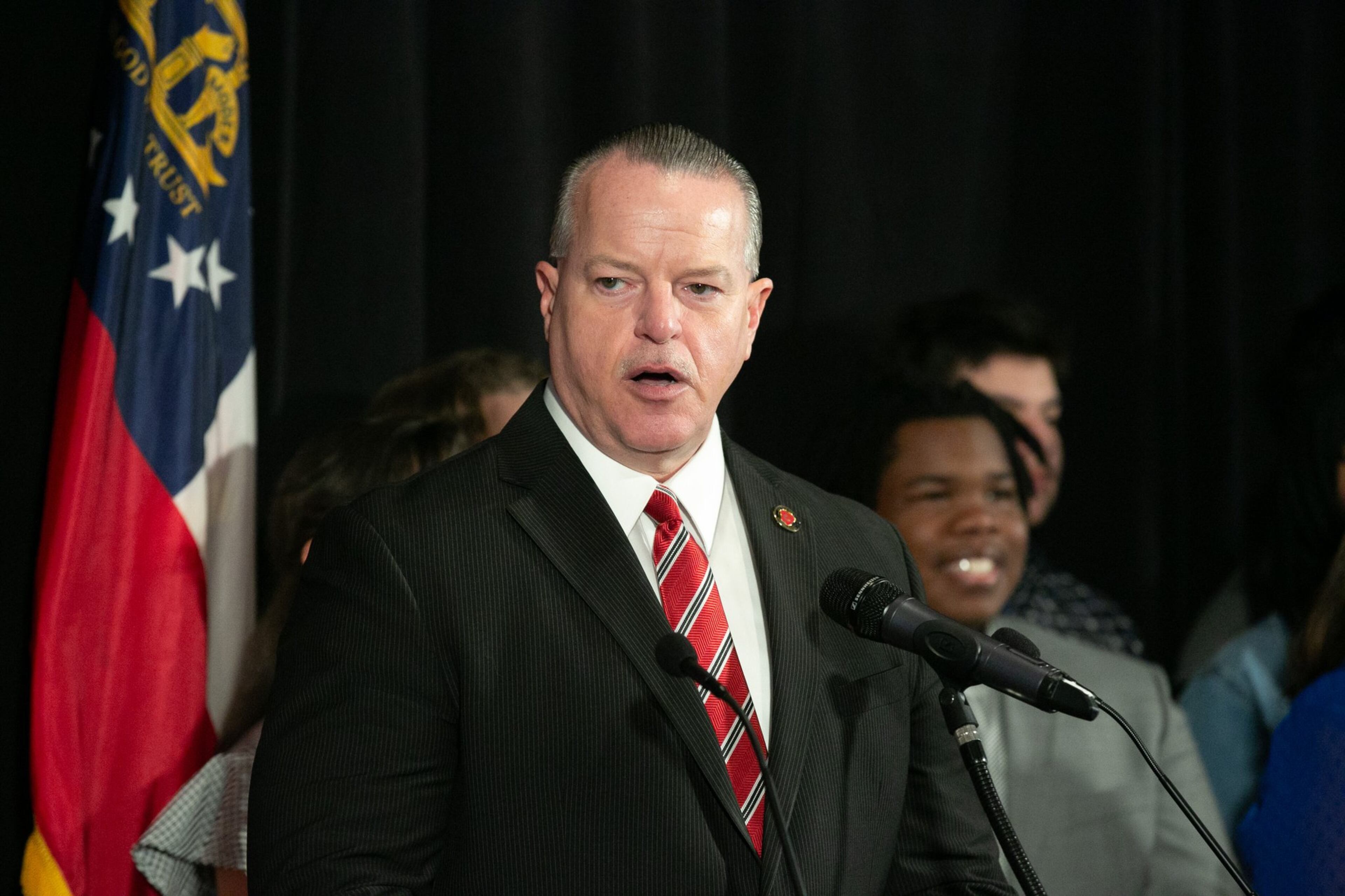Cobb school board revises exit terms in superintendent’s contract






The Cobb County Board of Education quietly amended Superintendent Chris Ragsdale’s contract recently to give him more power in dealing with his employer.
Ragsdale, who heads the state’s second-largest school district, could now end his contract early and potentially receive hundreds of thousands of dollars in severance pay if board members are found to have repeatedly undermined him in his duties, the contract states.
The Atlanta Journal-Constitution obtained the amended contract through an open records request. The changes include measures that other superintendent contracts in metro Atlanta largely do not have.
The board’s Republican majority approved the changes in November, but the details were not made public at the time.
“It’s a matter of a little bit of reassurance, a little bit of job security” for the superintendent, Board Chairman Randy Scamihorn told the AJC. “And a little bit so the board doesn’t act impulsively.”
Under the amended contract, the superintendent can request a hearing if board members “embarrass him” or interfere with his performance. He’s entitled to 90 days’ notice if he is to be terminated without cause. And if a panel decides that the board has “harassed” him repeatedly, Ragsdale can terminate his employment through another hearing and collect severance pay equal to the remainder of his contract.
Ragsdale’s current annual compensation includes a $350,000 base salary, 25 vacation days, a 12% employer contribution to a retirement fund and other benefits. Earlier this year, his contract was extended to Feb. 10, 2024. He’s served as superintendent since 2015.

A district spokesperson declined a request from the AJC to interview the superintendent.
“The board approves revisions,” the spokesperson said in an email. “The superintendent isn’t available and looks forward to discussing other topics in the future.”
Education law attorney Phillip Hartley explained that it’s good practice for boards and superintendents to have processes to address disagreements, but those aren’t usually outlined in the contract.
“Is it typical? I don’t think you would find that kind of process in the majority of Georgia school superintendent contracts,” he said. He noted that often contracts in metro districts vary from those in rural areas.
The Cobb superintendent’s contract stands out in metro Atlanta. Superintendents in Atlanta, Fulton and Gwinnett school districts do not have such extensive termination clauses in their contracts. The DeKalb superintendent is able to exit her contract early if the board breaches it and does not remedy the issue within 30 days.
The Gwinnett County Board of Education narrowly voted earlier this year to cut short its contract with longtime Superintendent J. Alvin Wilbanks, after the last election created a Democratic majority critical of his leadership.
Ragsdale’s contract states that unresolved and escalating issues between the board and superintendent “represent the greatest threat to a school district” and can endanger its accreditation.
Cognia, a nonprofit accreditation agency, released a report in November requiring the district to work on issues with leadership and governance. The Cobb County School Board has yet to publicly discuss the agency’s findings.
Scamihorn said he does not recall whether the amendments were a board member’s idea or the superintendent’s, but said it came up because of “frequent disagreements among board members.” There is no tension between the superintendent and the board to his knowledge, he said.
Two of Cobb’s Democratic board members — Jaha Howard and Leroy “Tre’” Hutchins — told the AJC their votes against the contract amendments speak for them.
“I think the only thing I can say is that I feel strongly about my vote,” Howard said. “I’ll leave it at that.”
Superintendent Chris Ragsdale
Cobb superintendent: Since 2015. (Interim superintendent, 2014)
Previously: Cobb’s deputy superintendent for operations (2011-2014); chief technology officer (2006-2014)
Education: Bachelor’s degree in information systems and a master’s degree in educational leadership from Kennesaw State University



